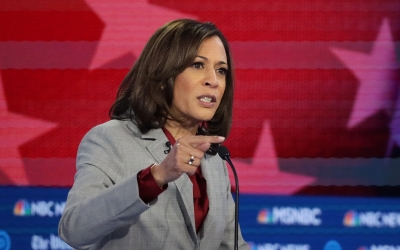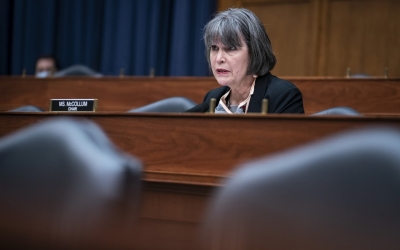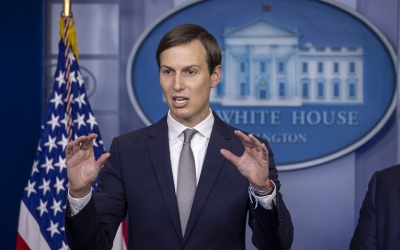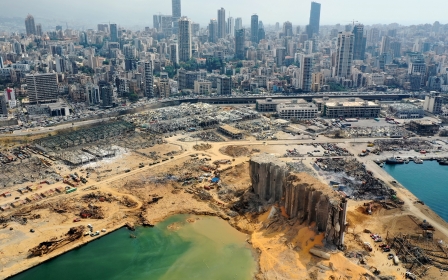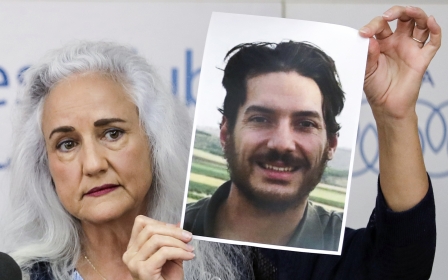UAE-Israel deal: A Trump re-election 'campaign rally'?
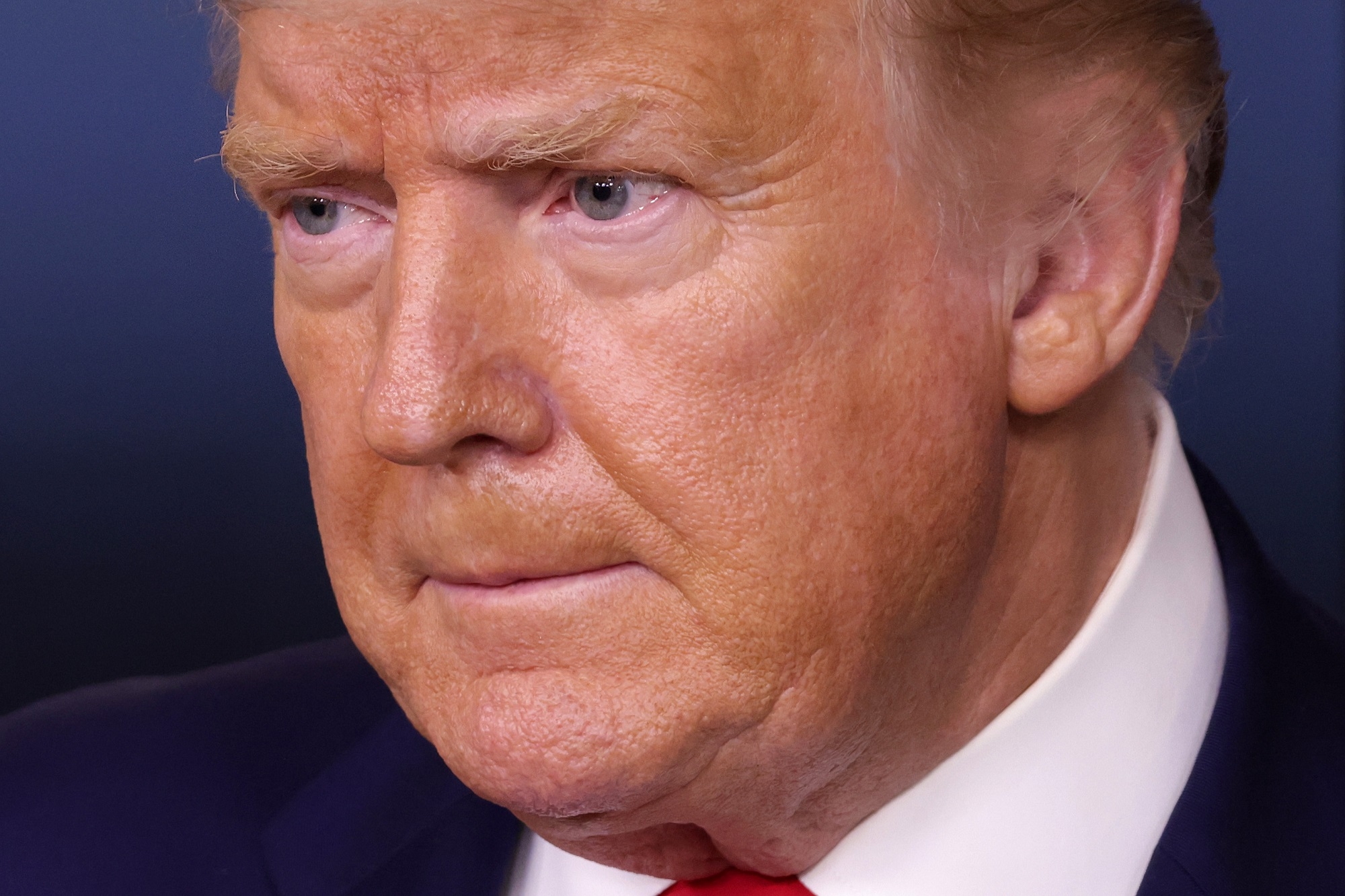
The United Arab Emirates and Israel have had close ties for a long time.
Earlier this year, two planes carrying medical aid flew directly from Abu Dhabi to Tel Aviv. In June, the two countries announced a private partnership to fight the coronavirus. Israel was invited to Dubai's World Expo 2020, which was postponed because of the pandemic.
High-ranking Israeli officials have openly visited the UAE since 2018, all while the leaders of both countries have tacitly acknowledged a regional alliance among themselves and the United States against Iran.
So when the White House announced in a joint statement with Israel and the UAE on Thursday that the two Middle Eastern countries had agreed to formally normalise ties, many wondered about the timing of converting the existing relationship into an official one.
The statement came 82 days before President Donald Trump's election day, during a race he appears to be losing, according to public opinion polls.
'Campaign announcement'
Khalil Jahshan, executive director of the Arab Center Washington DC, a think-tank, said the White House statement reads like a "campaign announcement" that aims to give the Trump administration a victory ahead of the November 3 election. "I think they're going to try to make it a campaign rally," he told MEE.
The statement says Israeli Prime Minister Benjamin Netanyahu "will suspend declaring sovereignty" on parts of the West Bank (euphemism for annexation) and delegates from both countries will meet in the coming weeks to iron out the details of the diplomatic agreement.
The US administration later confirmed that some meetings will take place in the White House.
"They haven't agreed to anything other than, in principle, let's do this campaign to rescue our friend from oblivion," said Jahshan.
He added that Trump will use the meeting as a "photo-op" for his re-election bid in a move that will also benefit Netanyahu, who is facing unprecedented protests and corruption charges.
Ariel Gold, national co-director of Code Pink, an anti-war feminist group, echoed Jahshan's remarks, saying that the deal aims to boost all three leaders involved.
She said Trump wants to divert US public attention away from the mounting death toll of the pandemic; UAE Crown Prince Mohammed bin Zayed wants to distract from his country's human rights abuses, and Netanyahu wants to quell demonstrations against his government.
"So this is a win-win for all three of them, but the big losers are the Palestinian people," Gold told MEE.
Will it work?
If the goal of the deal were to make Trump look good ahead of November, early results appear encouraging. Still, the move is unlikely to have a lasting impact on the electorate, experts say.
Media pundits and even Democratic politicians heaped praise on the deal. New York Times columnist Thomas Friedman dubbed the announcement a "geopolitical earthquake" that benefits the "pro-American, pro-moderate Islam, pro-ending-the-conflict-with-Israel-once-and-for-all camp" in the Middle East.
"The Israel-UAE Deal Is Trump’s First Unambiguous Diplomatic Success," read a headline in Foreign Policy magazine. "The UAE-Israel deal is Trump's first genuine foreign policy success, experts say," an NBC News story was titled.
Jared Kushner, Trump's senior adviser and son-in-law, was on a media blitz on Friday, talking up the deal he helped bring to light as an historic achievement.
"Let's just focus on what actually impacts the people," Kushner told CNN's Christiane Amanpour. "I think that this deal will make the Middle East safer for the American people. It gives us less necessity to have troops in the region."
He went on to say that diplomatic ties between the UAE and Israel would help mitigate the "jihadist" threat, arguing that militant groups used the Israeli-Palestinian conflict to "radicalise" young people.
Meanwhile, outside the bubble of foreign-policy analysts and pro-Israel politicians in Washington, the average American is dealing with the immediate realities of the pandemic and an economic crisis.
Jahshan said Middle East foreign policy is generally too complicated to be used to tip the scales in a presidential election.
"You cannot base a campaign on it. So, I doubt that the administration will get its money's worth, so to speak, from this, but they will definitely milk it to death," he said.
Gold also stressed that voters are more interested in domestic issues. She said even Jewish Americans who support Israel and are praising the deal are mostly reliable Democratic voters.
"I don't see it necessarily helping Trump. I think it gave him a good distraction for the day at Palestinians' expense," she told MEE.
Democrats react
Democratic leaders, who have long advocated normalisation between Israel and the Arab world, welcomed the agreement without mentioning Trump.
Presidential candidate Joe Biden called Abu Dhabi's decision to establish formal relations with Israel a "welcome, brave, and badly-needed act of statesmanship".
Although the joint statement on the preliminary agreement credited Trump for the deal, Biden said the declaration "builds on the efforts of multiple administrations to foster a broader Arab-Israeli opening, including the efforts of the Obama-Biden administration to build on the Arab Peace Initiative".
"It is a timely reminder that enmities and differences - even long standing ones - are not set in stone, and of the role American diplomacy can play," Biden said in a statement.
Eliot Engel, chair of the House Foreign Affairs Committee, said the announcement will contribute to peace and security in the region.
"I hope that this new breakthrough will give courage to other countries to move forward toward normalization and motivate Palestinians to give peace a chance," Engel, who will be leaving Congress after losing his primary to progressive challenger Jamaal Bowman, said in a statement.
Nancy Pelosi, the top Democrat in Congress, also called the deal "welcome news".
She added, in a statement: "The House continues to object to steps including unilateral annexation that will undermine future efforts to advance a just, stable and lasting peace in the Middle East.
"I hope that these efforts have been put on hold as the agreement indicates. This agreement reminds us that the best way forward for peace in the region is to create conditions for Israel to negotiate directly with her neighbors."
Senator Bob Menendez, the chair of the Senate Foreign Relations Committee, said the announcement was "historic".
"I hope this new relationship can pave the way for a more constructive, productive and secure future for Israelis, Palestinians, Emiratis and indeed the entire region," Menendez wrote on Twitter.
Congresswoman Rashida Tlaib, a Palestinian-American progressive, went against the trend of praising the announcement, saying that she will not celebrate the deal, stressing that "devastating aparthied", not formal annexation, is at the heart of the issue.
'I doubt that the administration will get its money's worth so to speak from this, but they will definitely milk it to death'
- Khalil Jahshan, Arab Center Washington DC
"This Trump/Netanyahu deal will not alleviate Palestinian suffering - it will further normalize it," she wrote on Twitter.
Palestinian-American activist Ahmad Abuznaid said by praising the deal, Democrats' are essentially "celebrating Trump" as his administration pivots towards normalisation between the Gulf and Israel after the "deal of the century" failed to gain traction.
Early in 2020, Trump and Kushner had presented an ill-fated plan to end the Israeli-Palestinian conflict that would allow Israel to keep all of its occupied West Bank settlements in exchange for the recognition of a disjointed Palestinian state with no control over its borders.
"Trump obviously had to be disappointed that the deal of the century was not agreed upon. And so then you begin to think of what are the backup plans that you can assert. Normalization with these Arab Gulf states may be something to celebrate for him," Abuznaid told MEE.
Middle East Eye propose une couverture et une analyse indépendantes et incomparables du Moyen-Orient, de l’Afrique du Nord et d’autres régions du monde. Pour en savoir plus sur la reprise de ce contenu et les frais qui s’appliquent, veuillez remplir ce formulaire [en anglais]. Pour en savoir plus sur MEE, cliquez ici [en anglais].


